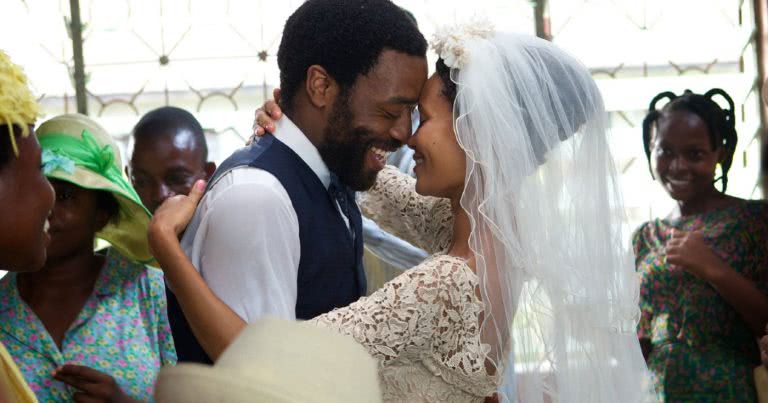Based on Nigerian author Chimamanda Ngozi Adichie’s 2006 novel of the same name, Half Of A Yellow Sun is constructed around Nigeria’s Biafran War. Lasting from 1967 to 1970, this ethnic and political conflict involved attempts by Nigeria’s southeastern provinces to establish their own independent state resulting in the deaths of over one million civilians.
Olanna (Thandie Newton) and Kainene (Anika Noni Rose), twins from a wealthy family, return to newly independent 1960s Nigeria after completing university in England. Going their separate ways, Olanna moves to the dusty college town of Nsukka where she lives with her lover, the revolutionary professor Odenigbo (Chiwetel Ejiofor). Meanwhile Kainene takes over the family’s business interests at the other end of the country and surprises herself by falling in love with English writer Richard (Joseph Mawle). Although romantic entanglements initially loom large, the impending civil war sees these personal dramas fade as survival becomes the priority.
While the Orange Prize-winning book has received glowing reviews worldwide, this screenplay does a poor job of translating this success. The director and screenwriter, prolific UK-based, Nigerian writerBiyi Bandele, fails to build the tension so key to the book, giving away important plot points far too early.
Further, while the book filters the events through the eyes of the four main characters, Bandele tells a linear story purely from Olanna’s point of view. As such, most of the characters lack substance and sympathy and although their lifestyles are courageously progressive for the time, the characters still come across as pompous and out of touch.
While there is no doubt this film has a lot to say, it’s arguable whether it manages to say much at all and makes for a somewhat shallow cinema experience.
2/5 stars
Half Of A Yellow Sunis in cinemas now.

































